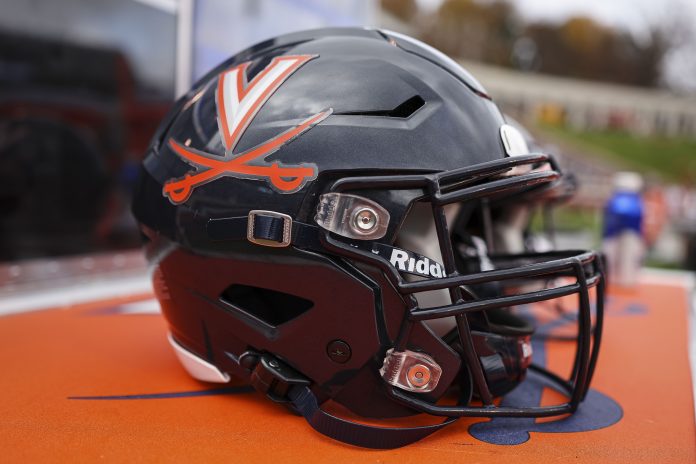In late April, the state of Virginia signed a measure into law that allows schools to pay their athletes through NIL deals. Previously, colleges had to go through collectives in order to secure contracts for their players, but that operation is now obsolete.
Details of Virginia’s Newest NIL Law
The state is now at the forefront of NIL legislation, with Michigan athletic director Warde Manuel telling the Associated Press, “The Virginia decision — by the lawmakers there and the governor to sign it — I think really kickstarts it and puts it right at all of our doorsteps.”
The law will go into effect on July 1, 2024, and was signed just a day after the NCAA relaxed some of its NIL and transfer portal restrictions. Yet, the governing body still said its “prohibitions against pay-for-play and schools compensating student-athletes for use of their NIL remain in place.”
In July 2021, the association allowed college players to earn money from deals with brands and businesses for endorsements, personal appearances, and other Name, Image, and Likeness opportunities.
The NCAA told ESPN that in cases where a law that contradicts its rules is permissive — allowing a school to do something rather than mandating that a school do something — the association expects schools to follow its rules still. However, Virginia could opt to sue the NCAA if it attempts to penalize any school that signs their athletes to NIL deals.
Now, it is important to note that the law explicitly states that athletes should not be considered employees, and schools are still not allowed to pay players for their performance. Rather, they may use university or athletic department funds to pay athletes for appearing in marketing campaigns. Virginia athletic director Carla Williams stated this was “maybe a distinction without a difference, but there’s a distinction there.”
What’s Next for College Football?
Much has been made about the current college football landscape. Transfers and NIL deals have ransacked smaller schools and played into the strengths of the blueblood programs, starting a new kind of arms race. While the current format isn’t sustainable, paying players was the correct course of action — a long-overdue one, at that.
But Virginia didn’t pass the law for the entire country — the state did it for its athletes. “If this law gets us closer to a federal or a national solution for college athletics, then it will be more than worthwhile,” Williams said. “Until then, we have an obligation to ensure we maintain an elite athletics program at UVA.”
Virginia Tech AD Whit Babcock shared a similar sentiment, saying, “There is a better model and a better compromise. This is absolutely a step in the right direction for the commonwealth of Virginia and the country, in my opinion.”
The law gives Virginia schools a significant recruiting advantage and should prove to be a catalyst for nationwide change. The state also joined Tennessee in a suit against the NCAA earlier this year, resulting in collectives and other third parties being able to offer NIL deals to athletes before they enroll in their schools. Essentially, NIL money can now be a part of recruiting pitches for the two states’ programs.
So, which states will follow in Virignia’s footsteps and allow their schools to pay athletes directly? South Carolina, Nebraska, Oklahoma, Illinois, Louisiana, and Mississippi have pending legislation regarding the ability to pay NIL deals. However, their bills specifically say that schools could pay their athletes if the NCAA or federal government allows it.
Meanwhile, Nebraska, Mississippi, and Missouri have laws that allow programs to pay a third party — an “institutional marketing associate” — to pay athletes for endorsement deals. Virginia’s law circumvents that step, effectively cutting out the middle man.
KEEP READING: Is a Super League the Answer to College Football’s NIL and Transfer Portal Problems?
The Georgias and Alabamas of the world are presumably already drawing up similar legislation, hoping to create their own recruiting advantage … at least until the NCAA is forced to dispose of the rule entirely.
We are mere steps away from colleges paying athletes like employees, and the NCAA needs to have some urgency before a free-for-all frenzy hijacks any semblance of structure.
College Football Network has you covered with the latest news and analysis, rankings, transfer portal information, top 10 returning players, the 2024 college football season schedule, and much more!


